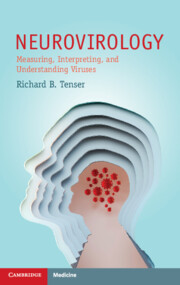Book contents
- Neurovirology
- Neurovirology
- Copyright page
- Dedication
- Contents
- Preface
- 1 Introduction to Virology
- 2 Measurement of Infectious Virus
- 3 Molecular Biology
- 4 The Immune System
- 5 Viral Pathogenesis
- 6 Viral Infections of the Nervous System
- 7 Neurovirology and Immunology
- 8 Experimental Neurovirology
- 9 The Future
- References
- Index
- References
9 - The Future
Published online by Cambridge University Press: 13 July 2023
- Neurovirology
- Neurovirology
- Copyright page
- Dedication
- Contents
- Preface
- 1 Introduction to Virology
- 2 Measurement of Infectious Virus
- 3 Molecular Biology
- 4 The Immune System
- 5 Viral Pathogenesis
- 6 Viral Infections of the Nervous System
- 7 Neurovirology and Immunology
- 8 Experimental Neurovirology
- 9 The Future
- References
- Index
- References
Summary
Significant advances in the development of antiviral medications has come from efforts towardsthe control of human immunodeficiencyvirus (HIV), with nucleoside analogs and protease inhibitors leading the way. Similar are advances in vaccine development and understanding the immune system, including immune senescence with age. Antibodies will be used to directly treat illnesses and also to deliver medications including oligonucleotides to abnormal cells. Similarly, viruses have been used to deliver genes to human cells, including abnormal neurons to treat hitherto untreatable illnesses.
Development of methods to measure T lymphocyte functions will enhance understanding of human viral infections and autoimmune illnesses – both of which vary with age. Included in this will be the role of epigenetics on immune functions.
Understanding of latent virus infections of the nervous system will develop including the role of viral genes and also neuronal genes. Related will be understanding if neuronal damage and the development of the post-polio syndrome.
Keywords
- Type
- Chapter
- Information
- NeurovirologyMeasuring, Interpreting, and Understanding Viruses, pp. 194 - 205Publisher: Cambridge University PressPrint publication year: 2023



